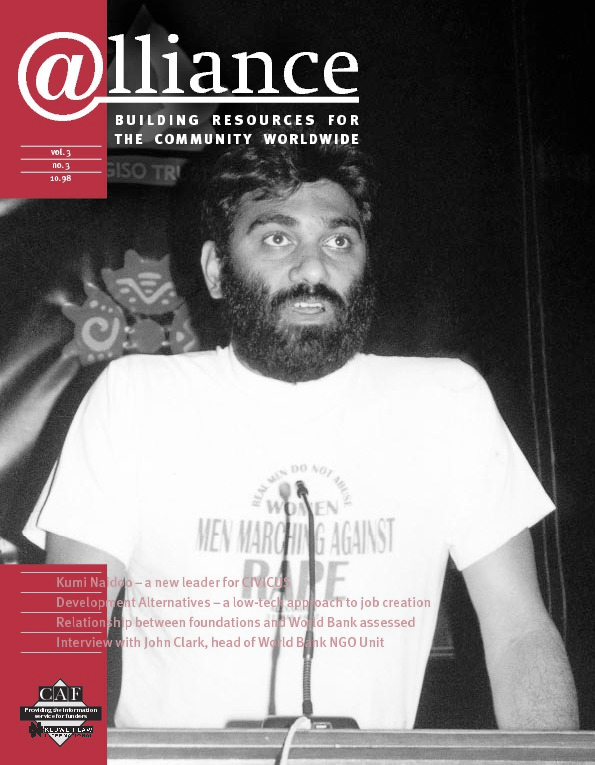Despite the fall of the iron curtain, for many in the West Russia remains Churchill’s ‘riddle wrapped in a mystery inside an enigma’. Fortunately, for those eager to know Russia better, there is a spate of new travel guides. For those eager to help Russian NPOs working to make Russia better, there is now a new sort of guidebook: CAF’s recently published looseleaf Working with the Non-Profit Sector in Russia. It is a comprehensive reference for companies, foundations and international agencies contemplating how they might participate in the renaissance of Russian civil society after three generations of dormancy. The guide invaluably aids both the novice and the initiated in navigating the Russian bureaucratic labyrinth. It provides instructions and advice on practical tasks such as opening an office and registering an organization. It offers insightful background information on Russia and its fledgling NPO movement. It explains relevant legislation in an easy-to-read style. Liberal use of examples and anecdotes enhance its accessibility and usefulness.
Both the Russians and the expatriate contributors combine a thoughtful insider’s understanding of the Russian third sector with well-grounded experience of the West. They are thus able to highlight potentially confusing vocabulary such as ‘advocacy’ and ‘volunteering’ for which there is either no Russian equivalent or one with a differing connotation. They illuminate contradictions, which a Westerner might not expect, between official procedures and actual practices. They render mostly good advice on a host of issues ranging from where to locate an office to how much to pay a lawyer. But sometimes a more questionable suggestion slips in such as ‘Knowledge of the law is more a hindrance than a help’ – an exaggeration perhaps partly borne of years of frustration. Nevertheless, even this gibe contains a helpful word to the wise against the use of confrontational legality which, in a context of weak adherence to the rule of law, could unwittingly summon additional bureaucratic unpleasantries.
As this review is being written, there is a new tax law before the Federal Duma that could erase the entire concept of NPOs from the tax assessor’s ledger. The lack of any organized response to this ominous threat to its very existence reveals the sector’s weakness. In the guide, however, CAF emphasizes lack of funding as the dominant shortcoming of the sector. One is left with the impression that were sufficient money available, the core obstacles to NPO development in Russia would disappear. Unfortunately, this is not the case, and CAF knows it. There are other profound problems such as public outreach (the Public Opinion Foundation found that less than 1 per cent of those polled felt they could count on an NPO in a time of need), governance and accountability (few Russian NPOs have functioning boards or transparent accounts) and horizontal communication (as exemplified by the poorly coordinated reaction to the threat mentioned above).
These caveats are not intended to deter foreign participation in Russia’s independent sector but to remind that Westerners and Russians alike have more to give than money: time, energy, experience, networks, etc. The greatest international benefits arise from fully-fledged and equal cooperation based on mutual understanding.
Chris Kedzie is Program Officer at the Ford Foundation’s Moscow Office.
Working with the Non-Profit Sector in Russia: A guide for companies, foundations and international agencies
Kluwer Law International and CAF International
£87/$145/NLG255
To order, call +1 617 354 0140 or e-mail sales@kluwerlaw.com (USA, Canada, Central & South America) or +31 78 654 6454 or e-mail services@wkap.nl (Europe and the rest of world)




Comments (0)